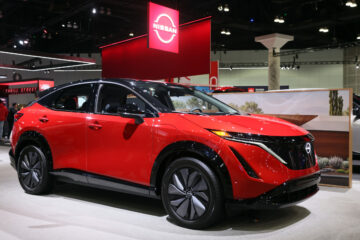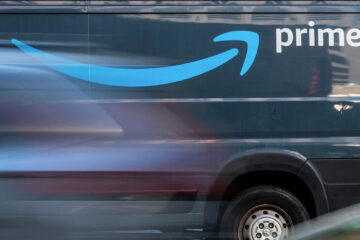U.S. Commerce Secretary Gina Raimondo on May 8 warned that “extreme action” could translate into a ban on Chinese “connected vehicles,” which could affect the prospects of companies like BYD (BYDDY) , NIO (NIO) and Geely (GELYF) .
In a statement at the time, Raimondo did not give a clear timeline for such actions. In response, China’s Foreign Ministry spokesperson Lin Jian urged officials in the United States to “act on its commitment of not seeking to hold back China’s economic growth.”
Related: Federal department chief has dire warning on China electric cars
In a press conference in May, he warned that Raimondo overblew the concept of national security, which he said can weaken or sever one’s economic ties with other countries and will lead nowhere. He added that such actions “will only destabilize global industrial and supply chains, disrupt international trade order, and end up harming one’s own interests.”
However, their message has seemed to fall on deaf ears within the Biden administration.
BYD Yangwang U9 at the 2024 World Manufacturing Convention (WMC) in Hefei, China, on Sept. 20, 2024.
Biden Administration’s new pitch
In a statement released early on Sept. 23, the Biden administration announced new sweeping proposals that would effectively ban the use of software originating from China in “connected cars” destined for roads in the United States.
The move, which is justified on national security grounds, is intended to prevent Chinese intelligence agencies and other bad actors from accessing critical data on the movements of Americans or using the gadgets in cars as a medium for accessing critical infrastructure.
In a briefing with reporters, including those from The New York Times, the Washington Post and NPR, Biden’s national security advisor Jake Sullivan and Raimondo emphasized the risks and dangers these vehicles supposedly pose to the American public.
“Cars today have cameras, microphones, GPS tracking and other technologies connected to the internet. It doesn’t take much imagination to understand how a foreign adversary with access to this information could pose a serious risk to both our national security and the privacy of U.S. citizens,” Raimondo said. “In an extreme situation, foreign adversaries could shut down or take control of all their vehicles operating in the United States all at the same time.”
“Many of these technologies collect large volumes of information on drivers,” Sullivan said. They also connect constantly with personal devices, with other cars, with U.S. critical infrastructure and with the original manufacturers of vehicles and components.
Although very few Chinese cars exist on the roads, Raimondo noted that the move is a “proactive” measure that is best concerning the national security and well-being of Americans.
“We’ll secure our cars and we’ll secure the American people, including our children, from potential surveillance, remote access and control, and protecting Americans from bad actors and trying to give every American peace of mind,” she said.
Related: Pres. Biden says Chinese EVs can pose a national security threat
The proposed rule results from an investigation that stemmed from a direct order from President Biden. Biden ordered Raimondo and the Commerce Department on Feb. 29 to investigate potential national security threats via “connected cars” from Chinese brands, which could send sensitive information to Beijing.
“Connected vehicles collect large amounts of sensitive data on their drivers and passengers; regularly use their cameras and sensors to record detailed information on U.S. infrastructure; interact directly with critical infrastructure; and can be piloted or disabled remotely,” the White House said in a statement.
However, officials, including President Biden, noted that the move is intended to act as a stopgap to prevent Chinese-branded cars from entering the U.S. auto market. President Biden’s remarks at the time emphasized that “a dynamic auto industry is vital to the U.S. economy.”
“China is determined to dominate the future of the auto market, including by using unfair practices,” President Biden said. “China’s policies could flood our market with its vehicles, posing risks to our national security. I’m not going to let that happen on my watch.”
Related: President Biden’s new Chinese EV tariffs might bite back, experts say
President Biden on May 14 unveiled steep 102.5% tariffs on electric vehicles — a strategic move made during his then-bid to remain in the White House.
In past remarks, Biden said that it is “unfair” for Chinese companies to create low-cost EVs because of government subsidies and that China’s practice of producing more than the market demands creates an unequal playing field.
“We’re not going to let China flood our market, making it impossible for American automakers […] auto manufacturers to compete fairly,” Biden said. “I’m determined that the future of the electric vehicles will be made in America by union workers. Period. And we’ll do it by following international trade laws to do it.”
More Business of EVs:
Waymo finds new way to bring chaos to quiet city streetsGavin Newsom’s ‘EV mandate’ is under U.S. Supreme Court threatBMW’s clever, new EV app is a privacy nightmare
Criticism from diplomats, auto industry
Various diplomatic and industry experts view this proposed rule as a bad idea.
During his regular press conference on Sept. 23, Jian said that the Raimondo ruling is “overstretching the concept of national security and taking discriminatory measures against relevant Chinese companies and products.”
“We urge the US to respect the principles of market economy and provide an open, fair, transparent and non-discriminatory business environment for Chinese companies, he said. “China will firmly defend its lawful rights and interests.”
In a statement to the Chinese state-owned newspaper Global Times, Xiang Ligang, director-general of the Beijing-based Information Consumption Alliance, noted that a ban on Chinese auto software and hardware would increase costs for US businesses and consumers.
“In the long term, it means Chinese companies will lose a major market if the US implements the ban; however, the ban will also cause losses for US businesses and consumers.”
In a statement, the Alliance For Automotive Innovation, a DC-based trade association and lobbying group representing major automakers including GM, Ford, Toyota, Porsche and Hyundai, noted that there is “very little” hardware or software technology that comes into the U.S. from China, but argued that automakers will need more time to comply with the ruling.
“I’ve said this in other contexts, but it applies here too: you can’t just flip a switch and change the world’s most complex supply chain overnight. It takes time,” Alliance For Automotive Innovation president and CEO John Bozzella said. “The lead time included in the proposed rule will allow some auto manufacturers to make the required transition but may be too short for others.”
Related: Veteran fund manager sees world of pain coming for stocks


